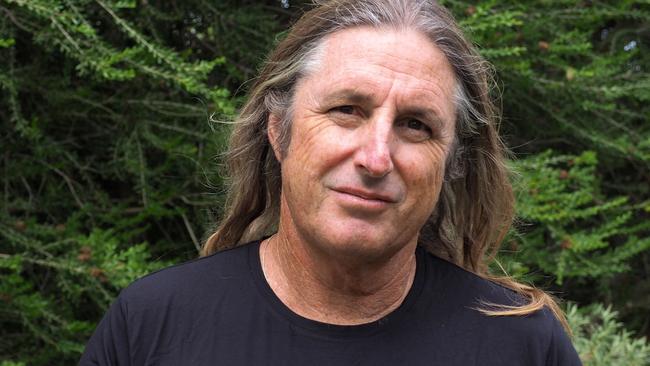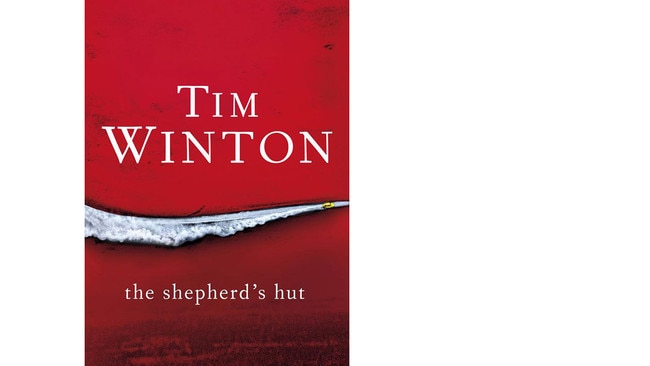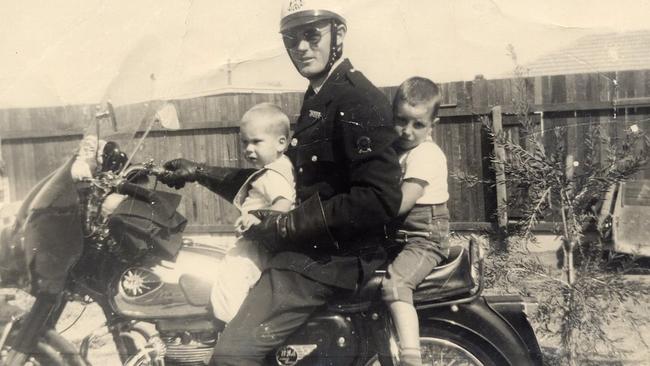The Shepherd’s Hut, by Tim Winton: unfinished business
With a near-feral boy and his thin repertoire of emotional responses, Tim Winton unpacks what it means to be a man in Australia.

You could argue The Shepherd’s Hut represents an outlier when it comes to Tim Winton’s body of work. It consists of a jagged shard of story, compressed in a time frame, focused on a bare cast of characters, and reduced via first-person narration to the perspective of an unbalanced, near-feral boy with a limited education and a slender repertoire of emotional responses. A novella almost, with a lean-to plot attached, when compared with the breadth and ambition of his previous novel, Eyrie (2013).
Except that it is also the most concentrated iteration yet of some of Winton’s enduring concerns. The relationship between sons and fathers, between young men and father figures, have been itches to scratch ever since the opening pages of his 1982 debut novel, An Open Swimmer, and the earliest short stories in his first collection, Scission, which appeared in 1985. What is it, he asks, over and over, to be a man in the Australian context? And how is a masculine ideal transmitted between generations, or else corrupted in the passing on?
Read in the long arc of Winter’s oeuvre, The Shepherd’s Hut becomes a tale freighted with context. Perhaps it has to do with becoming a grandfather, or the author’s antennae have sensed a shift in the culture, but something has stirred inside Winton, urging him once more to revisit the balance of power, love and responsibility he has attached to masculine relations over time.

Often in his writing, the relationship between father and son has been based on respect, even adoration, even if such feeling is modulated by the need to disguise or sublimate it. This time it is different. The father of The Shepherd’s Hut is an implacable, emotionally unavailable presence; a source of violence and little more. He is Australian masculinity pushed to its narrow extremity: a Wahhabist of blokedom.
The novel begins in medias res with a redneck monologue delivered by the driver of an SUV fanging it up the roads of the northern inland of Winton’s home state, Western Australia. Readers are given limited purchase on the events that have brought the narrator to this point. He is a radio station caught halfway through an urgent bulletin.
All we know is that he has come into possession of a powerful jeep, a stash of meat, a gun and, most significantly, a plan:
When I hit the bitumen and get that smooth grey rumble going under me everything’s hell different. Like I’m in a fresh new world all slick and flat and easy. Even with the engine working up a howl and the wind flogging in the window the sounds are soft and pillowy. Civilised I mean.
“‘It brings on this angel feeling,’’ he says. ‘‘Like you’re just one arrow of light.’’
We understand that whatever draws him towards his destination is as powerful as what has driven him from his origin. And whatever has happened in the meantime, well, it has had a focusing or purifying effect. He has been freed from various resistances, either in-built or external to him.
The narrator does not sound like a teenage boy, though that is what he turns out to be. Nor does he sound like someone in fear of the world. He rather sounds like someone the world should live in fear of. It is left to subsequent chapters to flesh out the mad baptism that has inspired such a rebirth.
The high-speed chase of an opening gains its effects wholly from voice. Gone is the middle-class remove of over-the-shoulder third-person narration: readers are inside the cabin, inside the head of Jaxie Clackton, to give the young man his name. And this decision is a boon to Winton the artist to the degree that it grants a freneticism to narrative proceedings. It allows a less patronising identification with the mental processes and low demotic of one young man.
It is also a serious, self-imposed constraint: permitting Jaxie to hog the megaphone is to risk building an imaginary world from asbestos cladding and barbed wire, toxic materials wholly resistant to more subtle or healthy use. Immediately after the opening sequence, for example, we are delivered back in time to the events that set the whole book in motion.

What we learn of Jaxie Clackton’s childhood and present circumstances is a lexicon of social deprivation and abuse, masked as a small-town boyhood.
Jaxie has only ever known the town of Monkton. And he has only ever known the fists of his father — or ‘‘Captain Wankbag’’, as the boy calls the man behind his back, erasing all paternal monikers and adding a suggestion of the martial.
Captain is the local butcher, a drunk who is quick with his hands but otherwise sullen and slow. Jaxie’s mother, whose background was originally a few social notches higher, is loving but ineffectual in protecting Jaxie from her husband. After her death from cancer, the two males are thrown together. Theirs is an uneasy domestic truce broken by a cowardly physical attack on Jaxie by the Captain after some imagined filial slight.
When Jaxie returns home after hiding out for a few hours, nursing his grievance and a blackened eye, he discovers his father’s corpse — a booze-fuelled accident in the garage — and automatically presumes the town will blame him for the death. He is widely disliked, after all: a violent boy, expelled from school, frightening to the neighbours. After the briefest of hesitations, he grabs some food, water and a gun, and lights out for the territories.
The landscape Jaxie heads towards is old mining country: barren, denuded, salt rising to the surface as if in biblical punishment for Europeans’ attempt to wrest some profit from the place.
It is here that the boy sets up camp in a hunter’s abandoned weekend retreat. He hopes to wait out any official search and then make his way to the town of Mount Magnet, where his cousin Lee lives. They have been kept apart for some time, after being caught in compromising circumstances at a family Christmas not long before.
Jaxie knows his feelings for his cousin are not correct according to the dictates of family or broader culture. Yet Jaxie is with Blaise Pascal: ‘‘The heart has its reasons which reason knows nothing of.’’ Lee is the only grace note in his monotone existence. What comes next will be for her.
Winton is, as always, a superb painter of Australian space. He takes this drear landscape and invests it with what can only be described as majesty. And for a while, it seems, with little food or water, Jaxie trembles on the edge of being absorbed into its fabric altogether: another set of bones for the wind to sing through by the shores of a great salt lake.
It is only by chance that he happens across another dwelling while out hunting — the shepherd’s hut of the title — and finds it is inhabited. After a tense initial standoff there, he is welcomed into the home of a strange old man living in exile at the end of the world.
Fintan MacGillis turns out to be a disgraced Irish priest, dumped in the never-never as a result of a calamity in a Third World country which he was witness to but did nothing to stop. He lives in a miasma of guilt and shame, a good man who has sinned grievously in omission.
But he is also a man of culture, and his mature awareness, cracked though it is by long solitude, is a window opened to a universe far larger than the one Jaxie has known so far.
The relationship between the two will become the central drama of the novel, since Jaxie’s survival is reliant on doing something that is inimical to everything life has taught him so far: trusting in the decency of an older man.
There is a ragged theology at work in their relationship in the days and weeks that follow. At first, Jaxie trembles with animal wariness. Perhaps the old man is a pedophile. Perhaps he is simply mad. He sings and talks to himself to the point of inanition, after all.
But as their relationship develops, Jaxie discovers in himself a degree of testy admiration for Fintan, even a degree of care. He ultimately takes on the role of confessor, even though the priest is unwilling to add more misery to the boy’s existence by explicitly sharing his crimes. Instead, he speaks to Jaxie of a dream in which a group of large rocks out on the salt lake mutely adjudicate on his offences:
Well, I said, to buck him up, it’s just a dream.
Ah, perhaps it is. And nothing more. Who knows, Jaxie? Maybe it’s the stones and trees who will be our judges in the end.
And the goats and roos?
Could be so.
And the birds.
Oh, especially the birds.
Suddenly the laser focus of the novel opens out on larger questions: of the colonial past and present ecological concerns.
Oh lad, I know they’re only stones. And the moon is only the moon. But they’re not empty things, you know. The past is still in them. The force of events long gone, it lingers. These heavenly bodies and earthly forms, what are they but expressions of matters unfinished.
Fintan admits to an incredulous Jaxie his loss of faith, but he does provide a makeshift alternative. ‘‘I suspect God is what you do,’’ he remarks, ‘‘not what or who you believe in.’’ And here we are back firmly in Winton territory, where a story of self-discovery and adolescent adventure takes on the aspect of a drama of belief: belief in the possibility of human decency that Fintan might yet represent.
Winton has built his career on a paradox. His sincerity, his moralism, his determination to prosecute ultimate questions of good and evil, of what it is to live a good life in a fallen world, have a Victorian tincture to them. He is not didactic, but he uses every writerly muscle he has to dramatise these large human concerns. As such, he has sometimes seemed unfashionable and askew in an age where a degree of postmodern caution about grand narratives has been the norm.
The Shepherd’s Hut reminds us of a change in the weather. Having lost faith in our political class and having been disappointed by those institutions of church and state that once demanded collective obeisance, we are left with few repositories of collective trust. We are like Jaxie, unmoored and agitated, living off the fumes of 20th-century liberal democracy, unsure of who or what to turn to.
Winton’s achievement in these pages is of a piece with his larger fictional project. He seeks to re-enchant the world, and to provide, via the essentially sceptical machinery of literature, a sense of secular communion.
A novel is not a church, and Winton is not a preacher. But he is a voice of sanity and his art is tuned to the possibility of care, even grace.
It is a tribute to Winton’s artistry, though, that he does not come to rest on some comfortable homily in these pages. Fintan gets his chance to atone, and it is terrible. And Jaxie gets his shot at freedom: which by definition could lead to some happy end, or else to some terrible eruption of the masculine violence latent in him.
Finally, it is the ambiguity of Jaxie’s future that grips the reader.
Deep in the belly of secular modernity, it is possible to lose a sense of human uniqueness; we are wet machines, after all.
Jaxie himself spends much of the book convinced that we are just meat, like the animals his father butchers, like the roos and goats he and Fintan dispatch to eat and survive. But Fintan’s example provides a stuttering, uncertain, yet powerful alternative.
That we create the moral universe we inhabit. That we are active agents in remaking the world for the better. If God is a verb, Winton tantalisingly suggests, we can be angels if we choose.
Geordie Williamson is The Australian’s chief literary critic.
The Shepherd’s Hut
By Tim Winton
Hamish Hamilton, 267pp, $39.99 (HB)

